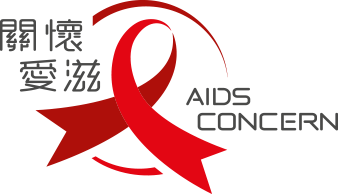
AIDS Concern successfully interviewed 112 university students by internet survey in order to understand the accessibility of sex health support and services at universities. The survey showed that nearly 40% of university students interviewed had had sex on campus. However, the interviewees scored the degree of convenience for getting / purchasing condoms on campus with only 4.4 (max. 10), which greatly affected their motivation to use condoms. In addition, 80% of the respondents never received sexual health information provided by the school, as well as 95% of the respondents did not know whether the school clinic provided sexual health service.
In view of this result, AIDS Concern has formulated the University Sexual Health Campus Indicator which includes: Campus Medical System, Condom Distribution Point, Sex Education and Sexual Health Promotion and Communications Platform to review the accessibility of sexual health support in eight universities in Hong Kong (See appendix 1). The following findings resulted from the indicators of various universities through direct inquiry into schools and review of relevant information provided by schools.
1. Insufficient comprehensive sexual health services in school clinics
A mature Campus Medical System should have at least one student clinic on campus to provide sexually transmitted diseases (STIs) or HIV testing for students. According to the student clinics in universities, none of the student clinics provide clear and student-friendly sexual health information. AIDS Concern thus invited student helpers to send email inquiry to eight local universities respectively.
Only two of the eight universities directly confirmed that the campus clinics provide STIs or HIV tests. The rest only passively replied, such as advising students to search for relevant information by themselves via the Campus Clinic website. When students ask for more sexual health information, their student ID and the reason for the inquiry have to be recorded. Hence, AIDS Concern concludes that the university failed to provide appropriate and student-friendly test services to users and therefore students were not able to receive immediate support when facing sexual health doubts and threats.
2. Inadequate free Condom Distribution Points on campus
Free condoms access point for students in dormitories is severely inadequate. Setting up free condom distribution points in dormitories can help to reduce the embarrassment of students while getting free condoms and increase condom use among young people. Thus dormitories should set free condom distribution point to provide free condoms in dorm. The current free condoms are provided by student organizations, yet the distribution points are very limited and mostly outside the dormitories. The low coverage of free condom distribution points limits the opportunities for students getting free condoms and developing positive and precise sexual health.
3. The limitations of school sexual health education
The school is passive and uninvolving in sexual health education. Regular sexual health workshops and promotional activities can effectively endorse and evangelize sexual health information. However, current workshops and promotional activities are limited and inconsistent which are not conducive to deliver sexual health knowledge to students. In addition, most of the existing sexual health promotional activities are held by student organizations and co-hosted by non-governmental organizations while the schools have held very few similar activities. The study also reflected that the schools even canceled some of the sexual health activities with different reasons, such as the religious background of the school. As the main platform for providing student services, the schools are inevitably responsible to promote sexual health education. The passive sexual approach for sexual health issues will only hinder the dissemination of sexual health information for students.
4. The school has not used youth-oriented communication media in promoting sexual health
Social media is the most popular platform for youth. Youth can greatly gain and increase their awareness of sexual health if the social media is well utilized. However, most existing materials on social media related to sexual health are delivered by student organizations which have limited sexual health coverage. None of schools have any sexual health education on social media platforms.
‘Universities follow the University Sexual Health Campus Indicator to improve the university’s sexual health education on campus. For example, the schools should actively advocate sexual health education, regularly organize sexual health workshops and activities, and provide resources to help students organize sexual health activities so as to encourage the cooperation between the schools and students. The schools can also provide information brochures such as distribute sexual health information at orientation camps to make it easier for students to receive various types of health support. In Princeton University, freshmen will have a sexual health and safety manual called “You’re So Sexy When You Are Sexually Transmitting STI’s ,” which describes the safety precautions needed to be taken in sexual behavior and each freshman also receives a condom.’ Jim Hoe, Project Manager (Community Studies and Youth) of AIDS Concern suggested.
AIDS Concern believes that university is a vitally important element in effectively implementing comprehensive sexual health education. It is essential for students to understand their sexual health.
For media enquiry, please contact Tobey Tse, Marketing and Communications Officer at tobey.tse@aidsconcern.org.hk or 2864 1315.
About AIDS Concern (https://aidsconcern.org.hk/)
AIDS Concern was established in 1990 as the first non-government charity organisation committed to the service of AIDS care in Hong Kong. Our vision is to create “TRIPLE ZERO” Hong Kong, this means ZERO new infections, ZERO stigma and ZERO AIDS deaths. AIDS Concern will lead social changes by individuals, organisations and society to achieve TRIPLE ZERO, to stop the spread of HIV/AIDS and eliminate stigma for people living with HIV

